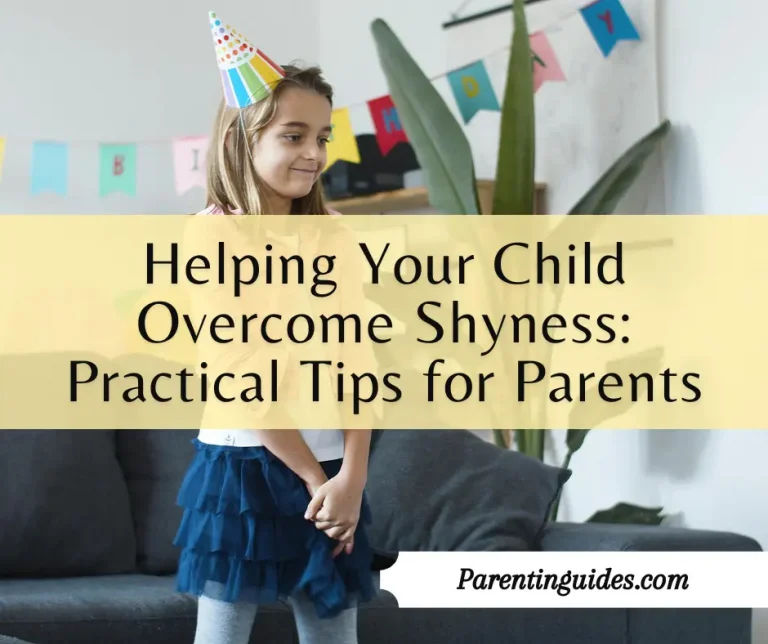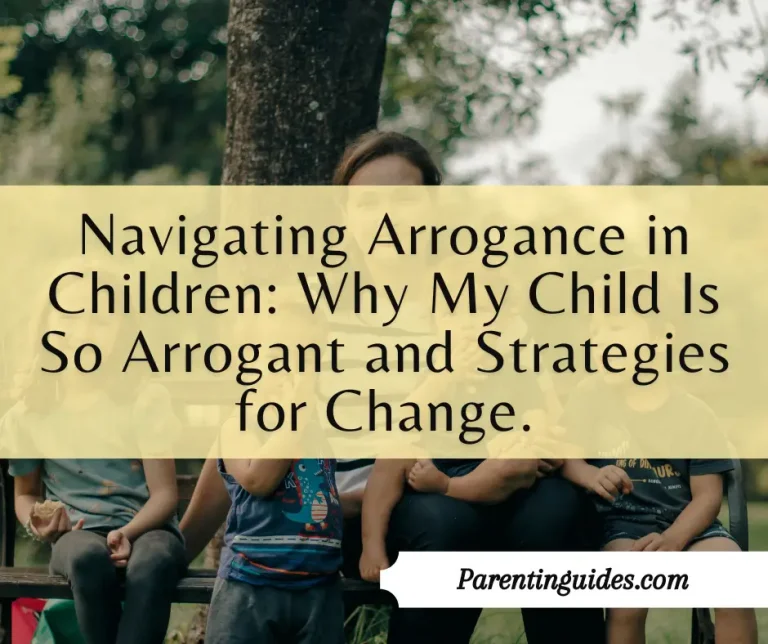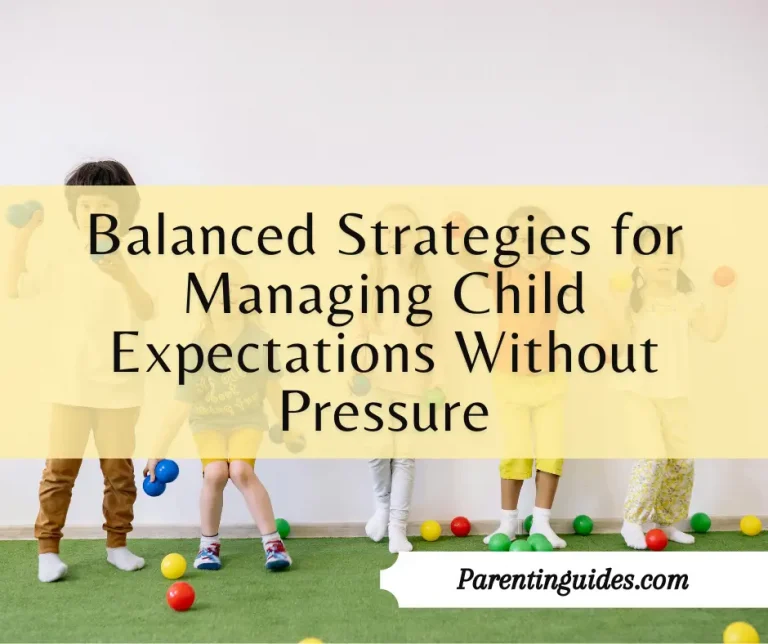As a mother who has embraced gentle parenting techniques, I have seen firsthand how these methods have transformed my family’s dynamics. Gentle parenting is all about nurturing a child’s development through empathy, respect, understanding, and patience. Unlike traditional parenting styles, this approach avoids harsh punishments and instead focuses on building strong, respectful relationships.
The importance of gentle parenting techniques in altering family dynamics cannot be overstated. It promotes a calm, nurturing environment where children feel secure and valued. This approach encourages open communication and mutual respect, which are vital for healthy family interactions.
In this article, I will share the journey of me and my husband and the impactful changes we have observed by practicing gentle parenting techniques. So, we will delve into what gentle parenting entails, how it differs from more conventional methods, and the psychological theories that support it. Then, you will learn effective communication strategies, ways to discipline without punishment, and how to set boundaries with empathy.
Additionally, we will also explore the benefits of gentle parenting techniques, not just for children, who show improved emotional intelligence and better social skills. This will also include the benefits for parents, who experience a stronger bond with their children and less stress. Moreover, we will discuss common challenges that parents face, such as maintaining consistency and handling external criticism, and offer practical solutions and resources to help you navigate these hurdles.
By the end of this article, we hope to inspire you to try gentle parenting techniques within your own family. Starting with just one technique can lead to noticeable changes in your family dynamics, creating a more loving and supportive environment for everyone. Join us as we explore the power of gentle parenting techniques and their profound impact on family life.
Understanding Gentle Parenting Techniques
Definition and Core Principles
When it comes to gentle parenting techniques, is a nurturing way of raising children that my husband and I have found incredibly rewarding. It revolves around understanding and responding to our children’s needs with empathy, respect, patience, and understanding. The idea is to foster a secure, loving environment where our kids can thrive emotionally and socially.
So, here are the core principles of gentle parenting techniques which are the foundation of its practice.
· Empathy: Seeing the world through our children’s eyes helps us understand their feelings and reactions better. This enables us to meet their emotional needs more accurately.
· Respect: We treat our children as worthy of respect. It is the same way we would treat any adult. This builds their self-esteem and teaches them how to respect others.
· Understanding: We strive to understand the reasons behind our children’s behavior instead of reacting to the behavior itself. This often means looking deeper into what feelings or needs are driving their actions.
· Patience: Gentle parenting techniques take time and effort. It requires us to be patient with both our children and ourselves as we learn and grow together in this journey.
How It Differs from Traditional Parenting Styles
Gentle parenting techniques stand in contrast to more traditional parenting styles. Here, my husband and I were more familiar with this before we embraced this approach. Traditional styles often fall into three categories which are authoritarian, permissive, and authoritative.
· Authoritarian Parenting: This style is about obedience and discipline, expecting children to follow strict rules with little discussion. It contrasts with gentle parenting, which encourages open dialogue and understanding.
· Permissive Parenting: Permissive parents set fewer rules and allow children to lead the way. Gentle parenting differs as it involves guiding children but with empathy and clear boundaries, not just laissez-faire freedom.
· Authoritative Parenting: This is often seen as a balanced approach, mixing firm guidelines with emotional support. Gentle parenting shares some similarities but puts even greater emphasis on understanding and empathy, rather than just balance.
Understanding these differences have helped us tailor our approach to suit our family’s unique needs, moving away from rigidity towards a more flexible, empathetic way of parenting.
Psychological Basis of Gentle Parenting
The psychological foundation of gentle parenting techniques resonates deeply with us. It is particularly through its connection with attachment theory. This theory suggests that a child’s early emotional bonds with their caregivers significantly impact their long-term emotional development and well-being.
Attachment theory supports gentle parenting by emphasizing the importance of forming secure attachments. These secure attachments arise from consistently responding to our children’s needs with sensitivity, presence, and love. Such an approach nurtures their confidence and trust, equipping them with a stable emotional base.
From our experience, applying this theory has not only helped our children feel more secure but has also made parenting a more joyful and fulfilling experience for us. We’ve noticed that our children are more confident and less anxious in new situations, which reassures us that our gentle approach is helping them develop into capable and emotionally resilient individuals.
By integrating these psychological insights into our parenting, we aim to provide a nurturing environment that fosters healthy emotional growth and strengthens our family bonds.

Implementing Gentle Parenting Techniques
Communication Strategies
In our household, implementing effective communication strategies has been pivotal. My husband and I have learned that the way we talk and listen to our children shapes our relationship. Here are some strategies we use in our day-to-day life.
· Active Listening: We give our full attention when our children are speaking, without interrupting. This shows that we value their thoughts and feelings.
· Reflective Responses: We often repeat back what we have heard in our own words. This helps clarify and assure our children that we truly understand them.
· Open-Ended Questions: Instead of yes or no questions, we ask our children questions that encourage them to express more about their feelings and thoughts. For example, “What made you happy at school today?”
· Calm and Gentle Tone: We always try to keep our voice calm and gentle, even when we are discussing something serious. This prevents them from feeling scared or defensive.
These techniques have not only improved how we communicate as a family. They also taught our children how to interact respectfully and thoughtfully with others.
Discipline Without Punishment
Discipline in gentle parenting techniques does not involve punishment. Instead, it is about guiding children towards making better choices. So, here is how we approach discipline.
· Natural Consequences: Instead of imposing artificial penalties, we let natural consequences teach valuable lessons where safe and appropriate. If a toy is thrown, it is put away for a while.
· Problem-Solving Together: We involve our children in finding solutions to behavioral issues. This encourages responsibility and accountability. For instance, if they make a mess, they help clean it up, discussing how they can avoid such situations in the future.
· Positive Reinforcement: We focus on what our children do right. We praise their positive behaviors, which motivates them to repeat those actions rather than focusing on the negatives.
This approach to discipline supports our children’s self-esteem and decision-making skills. As a result, it enables making discipline a learning experience rather than a punishment.
Setting Boundaries with Empathy
It is a known fact that setting boundaries is essential in any situation. When it comes to gentle parenting techniques, it is simply done with empathy and respect. Here are ways we set limits in our family.
· Expressing Clear Expectations: We clearly state what behaviors are acceptable and why, in simple terms, our children can understand. For example, we explain that “We don’t hit because it hurts others and makes them sad.”
· Consistency: We are consistent with our boundaries. This consistency helps our children understand and predict what is expected of them, which provides a sense of security.
· Empathetic Enforcement: When a boundary is tested, we acknowledge our children’s feelings but reaffirm the limit. We might say, “I know you’re upset because you want to keep playing, but it’s bedtime now so we can be rested for tomorrow.”
Implementing these strategies have helped us maintain a respectful atmosphere at home while ensuring our children understand their limits. This approach not only reinforces good behavior but also enhances our emotional connection. As a result, it makes the kids feel loved and respected even when boundaries are necessary.
Benefits of Gentle Parenting
For the Child
Gentle parenting has greatly benefited our children, nurturing their emotional intelligence and social skills. By using empathy and understanding, we have seen our children become more attuned to the emotions of others. They are better at reading situations and responding appropriately. Simply, it is crucial for building healthy relationships.
Our approach also encourages them to express their own emotions in a healthy way. They are learning that it is okay to feel sad or angry. But, it is important to talk about these feelings rather than bottling them up. This emotional openness contributes to their mental health and well-being.
Moreover, these gentle parenting techniques have improved their conflict resolution skills. Since we model and teach them how to resolve disagreements with words and empathy, they apply these skills in their interactions with peers. This not only helps them make friends. It also teaches them to maintain these friendships with compassionate communication and mutual respect.
For the Parents
As parents, gentle parenting techniques have been incredibly beneficial for my husband and me. One of the most significant benefits is the stronger bond we have developed with our children. By interacting with them in a respectful, empathetic manner, we have built trust and openness in our relationship. This has made our parenting experience deeply rewarding.
Additionally, this approach has significantly reduced our stress levels. Traditional parenting methods often lead to power struggles and behavioral challenges that can be exhausting and frustrating. In contrast, gentle parenting techniques, with their focus on understanding and cooperation, have led to a more peaceful home environment. We feel more equipped to handle parenting challenges calmly and effectively, which reduces stress and enhances our overall mental health.
For the Family Dynamics
Gentle parenting techniques have positively transformed our family interactions and overall dynamics. In our home, there is a palpable sense of mutual respect among all family members. This respect fosters a supportive environment where everyone feels valued and heard.
We have also noticed more cooperative behavior from our children. Since they feel respected and understood, they are more likely to contribute positively to family life, whether it is helping out with chores or supporting each other during tough times. This cooperation extends beyond mere obedience, stemming instead from a genuine desire to be part of a harmonious household.
Finally, gentle parenting techniques have led to more effective communication within our family. With everyone more willing to express their thoughts and feelings openly and respectfully, we have been able to resolve conflicts more quickly and maintain a closer emotional connection. This effective communication ensures that our family can face challenges together, strengthening our bond and enhancing our resilience as a unit.

Challenges and Overcoming Gentle Parenting
Common Challenges Faced by Parents
Practicing gentle parenting techniques are not always easy. My husband and I have faced several challenges along the way. One common issue is maintaining patience. It can be tough to stay calm and empathetic when you’re stressed or when your child is acting out. Another challenge is consistency. It is crucial to apply gentle parenting principles consistently, but daily stresses and varying situations can make this difficult.
Sometimes, we also struggle with doubt, especially when we don’t see immediate results from our efforts. Gentle parenting requires time to see changes, and this slow progress can be discouraging. Lastly, there is the challenge of divergent views from other family members or friends who may have different ideas about parenting. This can lead to second-guessing our approach too.
Strategies to Overcome These Challenges
To overcome these challenges related to gentle parenting techniques, we have found several strategies effective. Firstly, maintaining consistency is easier when we set clear, manageable goals. We discuss our parenting approaches regularly to ensure we are on the same page and adjust our strategies as needed.
When dealing with stress or impatience, taking a moment to breathe and step back before responding to our children can make a big difference. This helps us respond more thoughtfully and maintain the calm demeanor central to gentle parenting.
Facing external criticism, we remind ourselves why we chose this path. We also seek to educate our critics by sharing the benefits we’ve observed in our children’s development and our family dynamics. Sharing resources and evidence supporting gentle parenting can sometimes help others understand our choices.
Support and Resources
Finding support and resources have been vital in our gentle parenting journey. We regularly read books that provide insights and practical advice. Some of our favorites include “The Whole-Brain Child” by Daniel J. Siegel and Tina Payne Bryson, which offers strategies based on brain development, and “How to Talk So Kids Will Listen & Listen So Kids Will Talk” by Adele Faber and Elaine Mazlish, which provides communication techniques that promote mutual respect.
We also participate in online communities and forums where we connect with other parents practicing gentle parenting techniques. These platforms are great for sharing experiences, challenges, and solutions, making us feel supported and less alone in our journey.
Additionally, attending workshops and seminars has been incredibly beneficial. These events provide us with new tools and methods. They keep us informed and inspired too. Local parenting groups and child development centers often host such events, and we make it a point to attend whenever possible.
Long-Term Effects of Gentle Parenting
Impact on Adult Relationships
Through gentle parenting techniques, my husband and I have nurtured skills in our children that are crucial for healthy adult relationships. These include empathy, communication, and respect. By consistently modeling these behaviors, we have noticed that our children are already forming strong, respectful bonds with their peers.
Empathy, a cornerstone of gentle parenting techniques equips children to understand and share the feelings of others. This trait is invaluable in adult relationships, whether they are friendships, professional relationships, or romantic partnerships. It helps in navigating conflicts and fostering deeper connections.
Effective communication is another key skill. It ensures that our children can express their thoughts and feelings clearly and listen to others. This not only helps in maintaining transparency in relationships but also builds trust and mutual understanding.
Finally, respect, which we instill by treating our children as worthy individuals. It teaches them to value others. This respect is carried into adulthood, contributing to relationships that are equitable and supportive.
Career Success and Personal Development
Gentle parenting techniques also lay a foundation for career success and personal development. Traits like emotional regulation, empathy, and problem-solving, which are emphasized in this parenting approach, are highly regarded in the professional world.
Emotional regulation helps individuals manage stress and maintain professionalism in challenging workplace situations. Empathy allows for better teamwork and leadership, as understanding diverse perspectives is crucial for collaboration and conflict resolution. Problem-solving skills, nurtured through open-ended questions and challenges in childhood, enable creative and effective solutions in career tasks.
Moreover, gentle parenting techniques promote a love for learning and adaptability, qualities essential for personal growth and career advancement in today’s fast-paced world. Our children learn to view challenges as opportunities for growth, a mindset that drives innovation and continuous improvement in their professional lives.
Psychological Resilience and Well-being
One of the most significant long-term benefits of gentle parenting techniques are the development of psychological resilience. By addressing our children’s emotional needs with understanding and support, we help them build a strong foundation for mental health.
This resilience manifests as a capacity to cope with stress and bounce back from adversity. Having been taught to face challenges with a supportive background, our children learn to manage their emotions effectively. This skill is critical for maintaining mental well-being through the various ups and downs of life.
Additionally, gentle parenting techniques, with their emphasis on unconditional love and support, foster a strong sense of self-worth and security in children. This inner strength is a key component of overall well-being, contributing to healthier stress responses and less vulnerability to mental health issues.
Through our own experiences, my husband and I have witnessed how these principles not only benefit our children in their current state but also promise to support their well-being and resilience as they grow into adulthood.

Conclusion
Reflecting on our journey with gentle parenting techniques, my husband and I are truly grateful for the profound impact it has had on our family dynamics. By embracing empathy, respect, understanding, and patience, we have not only enhanced our children’s development but also enriched our own parenting experience. This approach has brought us closer, reduced our stress, and created a harmonious home environment where everyone feels valued and understood.
We have shared the core principles of gentle parenting techniques and illustrated how they differ from traditional parenting styles. It is backed by psychological theories like attachment theory. Our practical advice on communication, discipline without punishment, and setting empathetic boundaries offers a roadmap for other parents looking to embark on this transformative journey.
The benefits we have discussed range from improved child development to enhanced adult relationships and career success. Here, it highlights the long-term positive outcomes of gentle parenting techniques. These benefits underscore the importance of fostering an environment of unconditional love and support.
We encourage you to start with one gentle parenting technique. Observe the changes not only in your children but also within yourself and your family dynamics. Gentle parenting is a journey of growth for both the child and the parent. By adopting these gentle parenting techniques, you too can experience a more loving and supportive family environment. Therefore, join us in embracing the power of gentle parenting and see how it can transform your family dynamics for the better.









